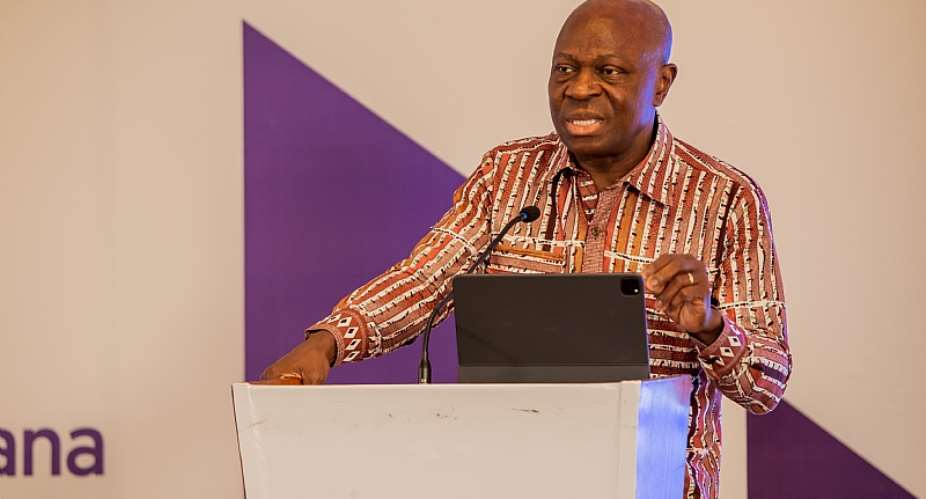All over the world, research has shown that Small and Medium-sized Enterprises (SMEs) particularly in developing and emerging countries are often characterised by huge decent work deficits than larger enterprises. These include poor working conditions, low productivity, low competitiveness, low market share, low skilled workforce and ineffective management practices.
The Medium-Term National Development Policy Framework (2022-2025) of Ghana recognises the high level of unemployment which is occasioned by absence of technical and vocational skills, inadequate entrepreneurial skills, and poor business development services. Other factors include inadequate opportunities for training skills, upgrade and innovations, mismatch between training / skills and the needs of the labour market. Additionally, there is lack of an objective national productivity measurement, and inadequate data on job creation. These and many other factors have dominated the long-term trend of falling productivity growth rates.
In order for policymakers and practitioners to improve productivity and working conditions in various economies, it has become necessary to review current approaches and adopt new innovative approaches that would create a virtuous cycle between productivity growth and the creation of decent jobs. According to the ILO, this can be achieved by bringing together government, social partners and other key actors to promote productivity growth and social justice in an economically, socially, and environmentally sustainable business climate.
As part of measures to address decent work deficits in SMEs, the International Labour Organisation (ILO) launched the Productivity Ecosystems for Decent Work (PE4DW) Project in 2021. It is a global multi-country programme to promote productivity growth for decent work, combining different approaches that strengthen productivity drivers across policy, sector, and enterprise levels.
In addition, the programme is in line with the United Nations Sustainability Development Goals (SDGs) 8.2, which encourages member states to pursue higher levels of economic growth through diversification, technology upgrading and innovation through a focus on high value added and labour-intensive sectors.
To this end, the Director-General of the ILO, Mr. Gilbert F. Houngbo and the Minister for Employment, Labour Relations and Pensions, Hon. Ignatius Baffour Awuah (MP) jointly launched the Project in Ghana at a short ceremony held on 22nd February 2023 at the Kempinski Hotel Gold Coast City in Accra. The project spans from 2022 to 2025 and is currently being implemented in three countries, Ghana, Vietnam and South Africa.
In Ghana, the project will specifically address challenges in the garment and textile industries as well as shea, enhance productivity and promote decent work, and at the same time support economic growth and national development.
Speaking at the launch, Mr. Houngbo said the ILO attaches great importance to productivity and the decent work programme in Ghana and reiterated the sustainability of the project. He therefore called on social partners to collaborate with Government to ensure that the livelihood of workers are improved as well as the project becomes successful. “In addressing deficiency in the productivity ecosystem, we must work together”, he said.
On his part, the Minister for Employment, Labour Relations and Pensions, Hon. Ignatius Baffour Awuah (MP) lauded the ILO Director-General, indicating his visit to Ghana is one of the highest forms of bilateral relations between Ghana and its Social Partners in the quest for decent jobs and enhanced productivity.
The launch of the PE4DW project climaxed the three-day working visit of the Director-General of the ILO and two German Federal Ministers to Ghana.
It is anticipated that the project would increase the capacity of ILO constituents and MDAs to formulate and implement national employment policies and productivity frameworks by establishing national and sectoral public-private social dialogue platforms, enhancing multifactor productivity statistics to inform wages and policies and building institutional capacity for sector organisations among others.
The Writer is the Head of Public Affairs at MELR & a staff of ISD.





 Dumsor: Mathew Opoku Prempeh has been disrespectful, he should be fired – IES
Dumsor: Mathew Opoku Prempeh has been disrespectful, he should be fired – IES
 NPP prioritizing politics over power crisis solution — PR Strategist
NPP prioritizing politics over power crisis solution — PR Strategist
 E/R: Gory accidents kills 3 persons at Aseseaso, several others critically injur...
E/R: Gory accidents kills 3 persons at Aseseaso, several others critically injur...
 Nobody can come up with 'dumsor' timetable except Energy Minister – Osafo-Maafo
Nobody can come up with 'dumsor' timetable except Energy Minister – Osafo-Maafo
 Dumsor: You ‘the men’ find it difficult to draw timetable when ‘incompetent’ NDC...
Dumsor: You ‘the men’ find it difficult to draw timetable when ‘incompetent’ NDC...
 We’re working to restore supply after heavy rains caused outages in parts of Gre...
We’re working to restore supply after heavy rains caused outages in parts of Gre...
 NPP government plans to expand rail network to every region — Peter Amewu
NPP government plans to expand rail network to every region — Peter Amewu
 Dumsor must stop vigil part 2: We’ll choose how we demonstrate and who to partne...
Dumsor must stop vigil part 2: We’ll choose how we demonstrate and who to partne...
 2024 elections: NDC stands on the side of morality, truth; NPP isn't an option —...
2024 elections: NDC stands on the side of morality, truth; NPP isn't an option —...
 Akufo-Addo has moved Ghana from 'Beyond Aid' to ‘Beyond Borrowing’ — Haruna Idri...
Akufo-Addo has moved Ghana from 'Beyond Aid' to ‘Beyond Borrowing’ — Haruna Idri...
